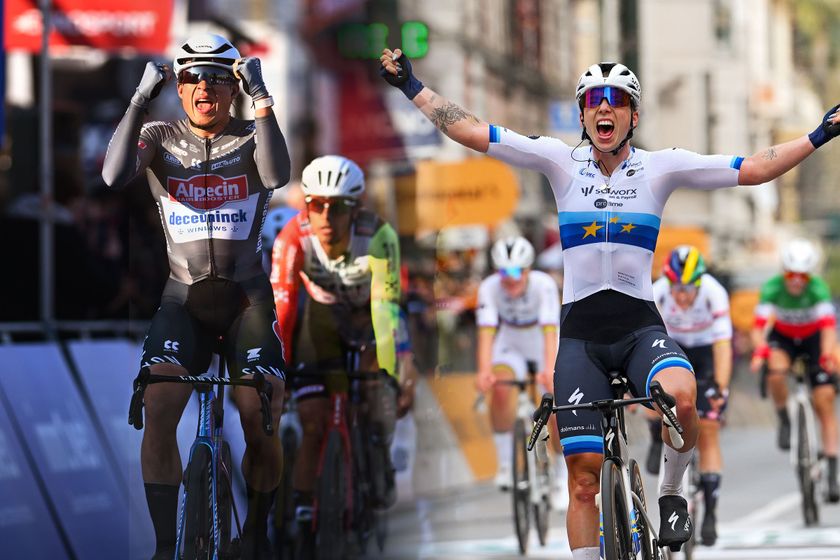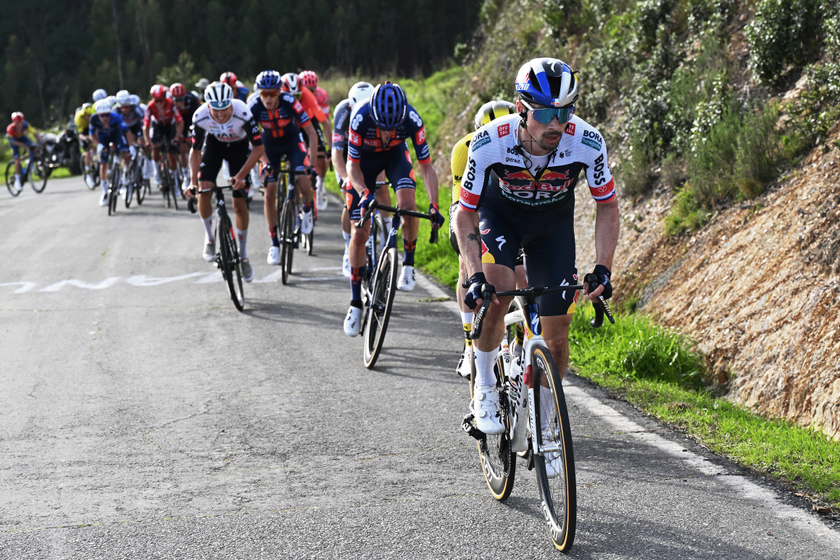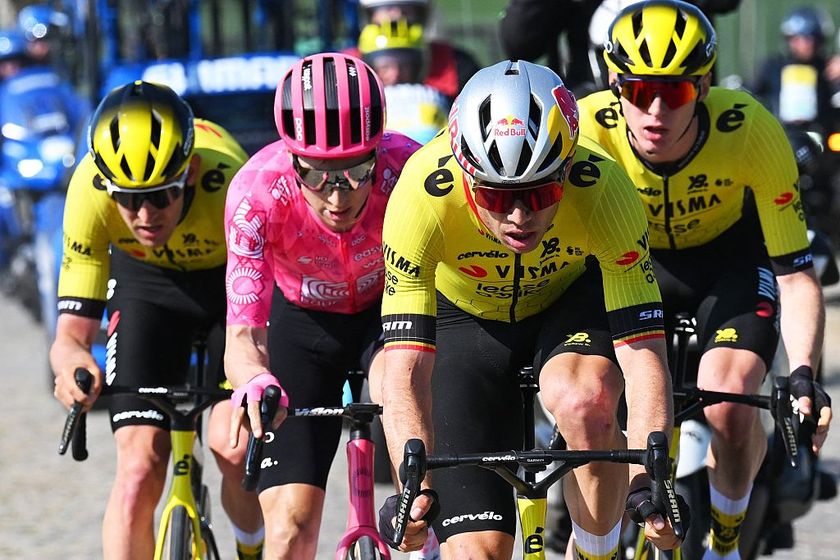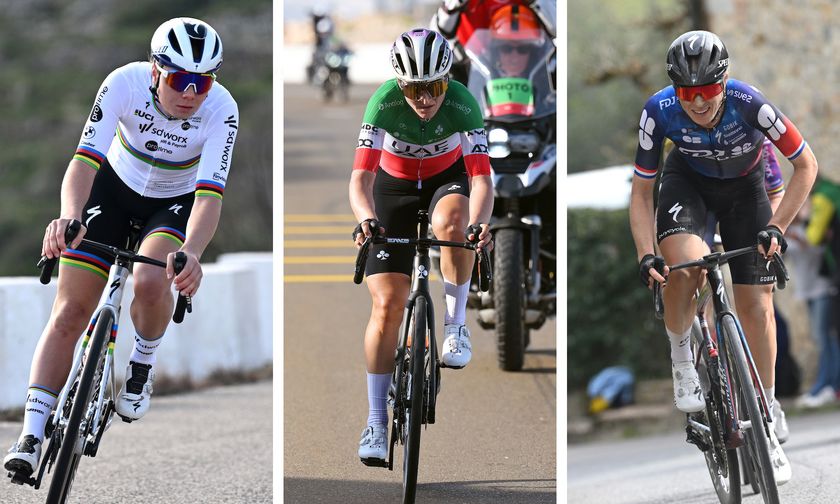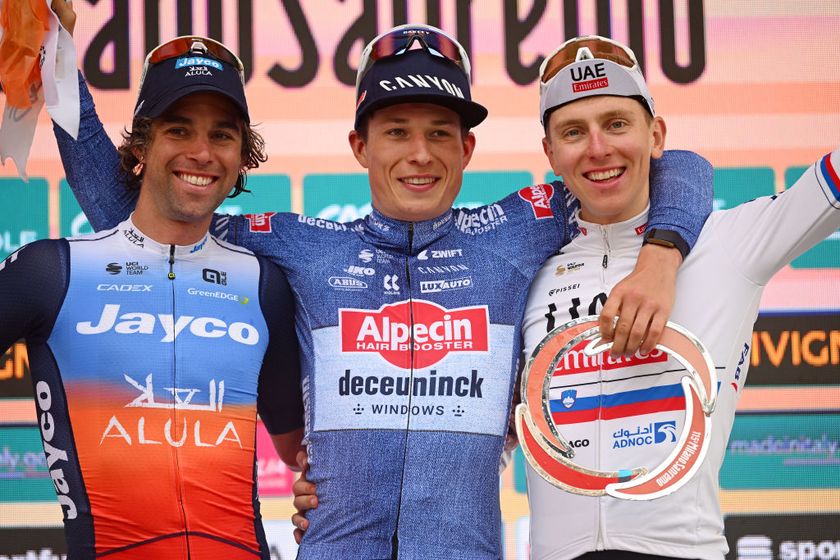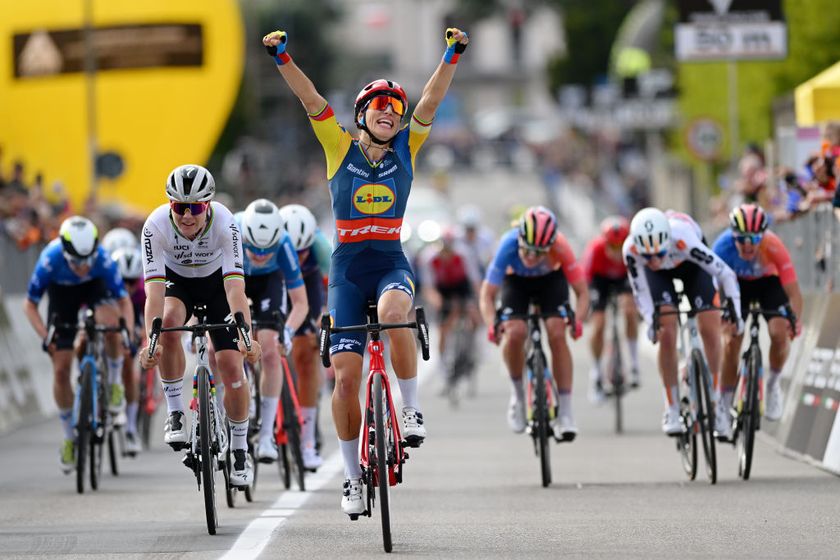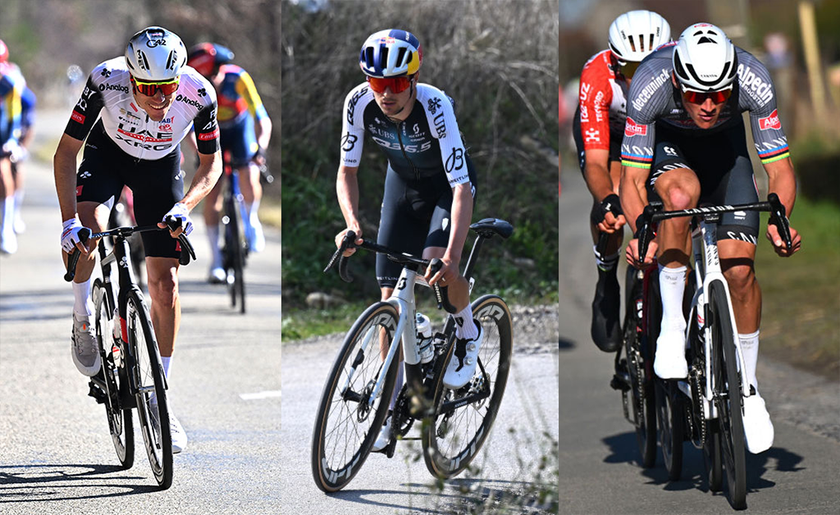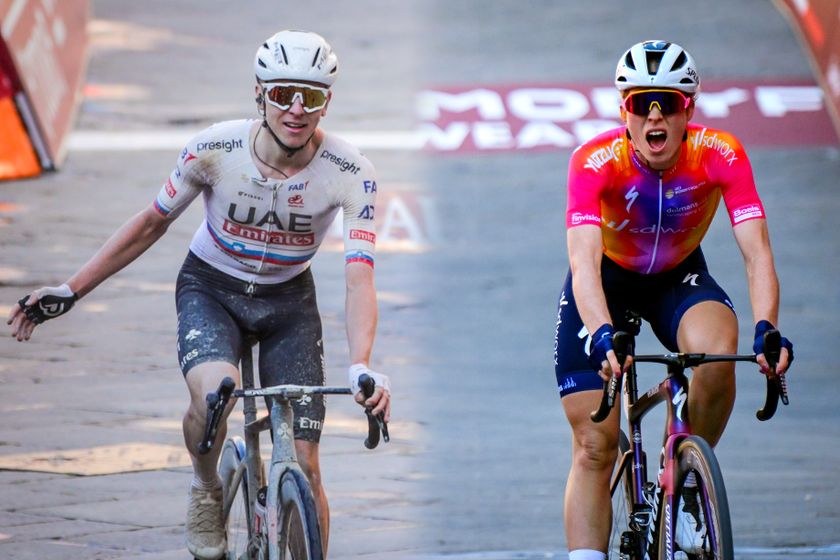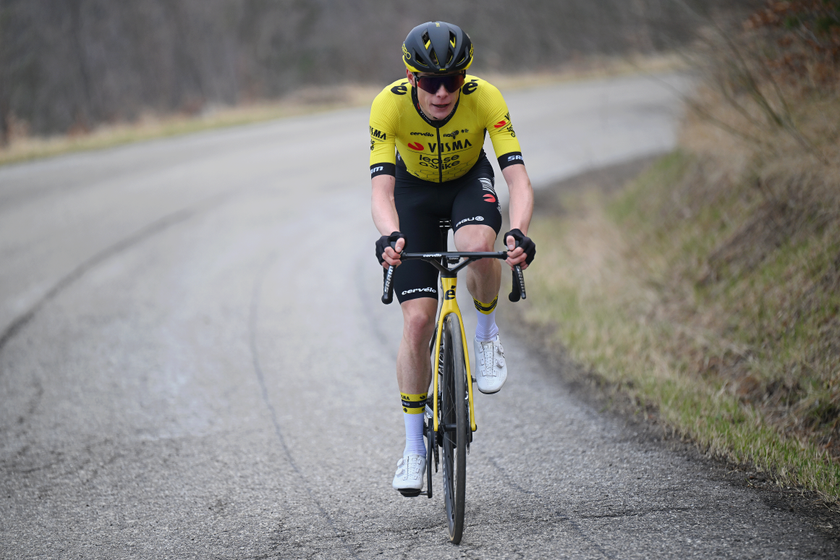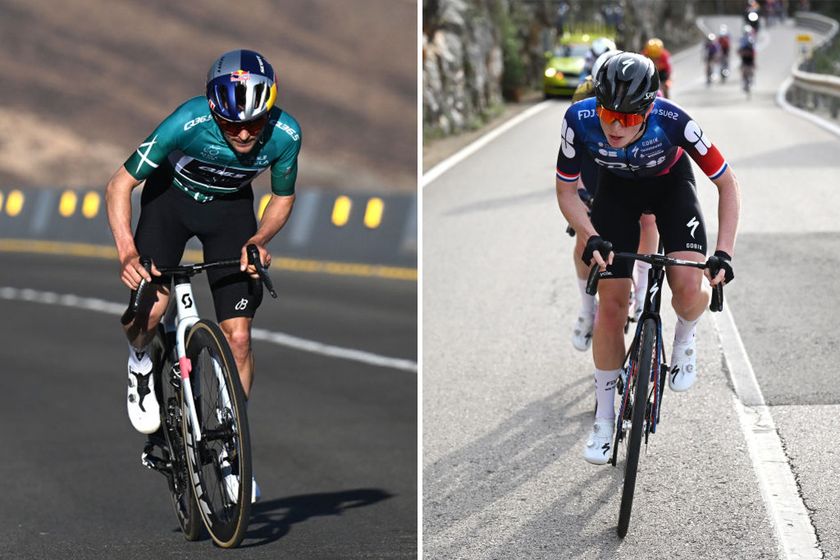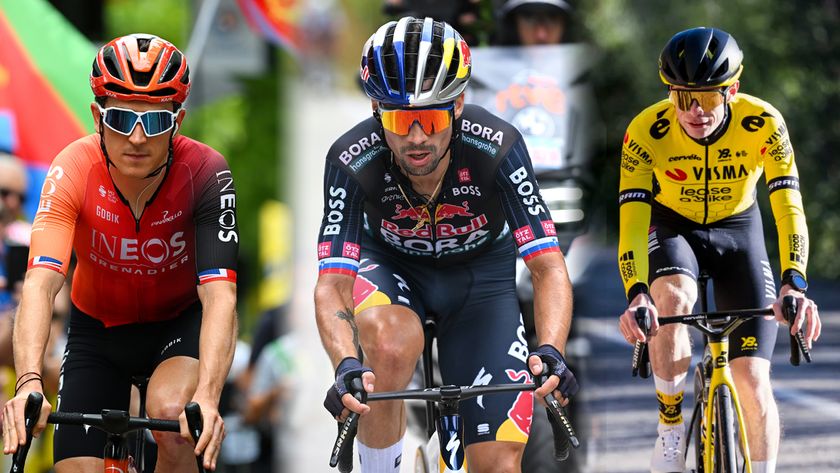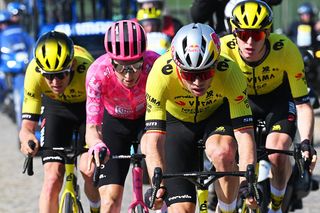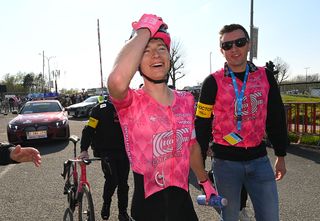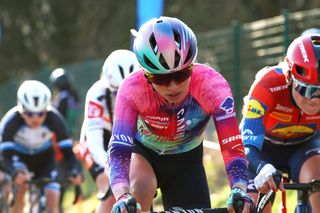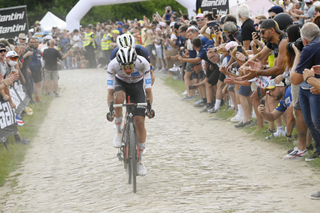A whiff of the Grand Tours: Volta a Catalunya Preview
Catalan race sees Giro d’Italia and Tour de France contenders compare form
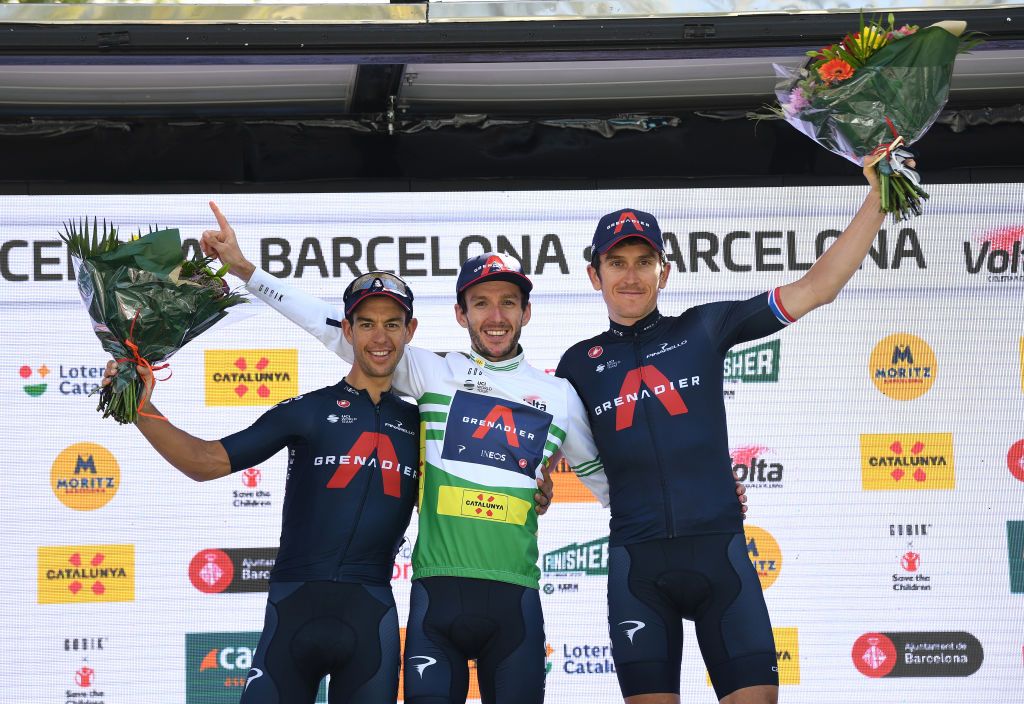
From the capi of Milan-San Remo to the cobbles and mud of Gent-Wevelgem, the Classics season is unquestionably at fever-pitch this week. But it shouldn’t be forgotten, either, that simultaneously the Volta Ciclista a Catalunya will be providing a classic stage racing challenge for many of the sport’s Grand Tour specialists.
Of course, the fact that neither Tadej Pogačar (UAE Team Emirates) nor Jonas Vingegaard and Primož Roglič (Jumbo-Visma) are taking part in the Volta skews considerably any hope of using the week-long stage race as grounds for full-scale predictions for the Grand Tours themselves. But that’s always been the case.
This year, for example, riders like Simon Yates (BikeExchange-Jayco), Tom Dumoulin (Jumbo-Visma), Joao Almeida (UAE Team Emirates), Richard Carapaz (Ineos Grenadiers), Jai Hindley (Bora-hansgrohe) and Alejandro Valverde (Movistar) will all likely be top contenders at the Giro d'Italia in May.
On the other hand, other top favourites for La Volta like Nairo Quintana (Arkea-Samsic), Ben O’Connor (AG2R Citroen), and Jack Haig (Bahrain-Merida), as well as Michael Woods (Israel-Premier Tech), are due to take aim at the Tour.
Quite apart from these top names, there are a host of outside favourites set to be present on the Volta’s first start line in the coastal town of Sant Feliu de Guixols this Monday lunchtime.
Outstanding climber Wout Poels (Bahrain-Merida), former Volta winner and Tour podium finisher Richie Porte (Ineos Grenadiers), and Esteban Chaves (EF-Education EasyPost), who took the Volta’s toughest mountain stage last March, are all on the provisional start list of the race.
Beyond that, veteran stage hunters and Classics stars of the calibre of Thomas de Gendt (Lotto-Soudal) - staggeringly successful in previous versions of the Volta with no fewer than six stage wins already to his name - are also due to be in Catalunya. Then there are a string of promising young talents, incuding two of Spain’s biggest new names, Juan Ayuso (UAE Team Emirates) and Carlos Rodriguez (Ineos Grenadiers) as well as 2021 Tour de L’Avenir winner Tobias Johannessen (Uno-X Pro Cycling).
Thanks to its late-March slot, the Volta pits Giro d’Italia and Tour de France contenders against one another in a way no other WorldTour race with so much high mountain climbing manages to do prior to May.
Last year, for example, Ineos Grenadiers filled the top three places overall in the final podium in Barcelona’s Montjuic Park, courtesy of winner Adam Yates, Richie Porte and Geraint Thomas. But as we all know, although Yates subsequently came close, none of them actually made the top three in a 2021 Grand Tour.
Rather, thanks to a combination of the quality of its lineup of GC stars, the prestige of winning one of cycling’s most venerable stage races (now in its 101st year and counting) and the unprecedented difficulty of its mountain stages in terms of the season so far, the Volta constitutes a timely reminder what lies in store when the curtain finally falls on the Classics season in a month’s time on Liège’s Boulevard d’Avroy.
And as such, the Volta also offers a welcome contrast in style and pace from the none-stop series of one day races taking place elsewhere in Europe over the next fortnight.
In fact, for the first time this season, thanks to Volta’s two full days of climbing in the Pyrenees, we’ll seeing how a host of GC specialist riders shape up on one of Europe’s main mountain ranges. Sandwiching those two mid-week Pyrenean climbing challenges, of course, are five fraught, hilly stages across the southern sierras of Catalunya, culminating in Sunday’s traditional showdown, an adrenalin-fuelled series of punchy laps round the Montjuïc park in Barcelona.
Furthermore, unlike the Giro and Tour’s respective warm-up races in the Tour des Alpes or the Criterium du Dauphiné, the Volta Ciclista a Catalunya, to give the race its full (and only very occasionally used) name, has a unique selling point.
The route








Thanks to a long-overdue move from the nearby coastal town of Calella, used as the Volta’s starting point every year since 2012, this year the Volta’s opening circuit stage in Sant Feliu de Guixols is peppered with short, punchy climbs, culminating in a short but not excessively difficult uphill finish.
The bunch will be far more vulnerable to splitting seriously apart on stage 2, though, as the route wends its way along the Mediterranean coastline for the first visit to French Catalunya’s capital, Perpignan, in nearly 70 years. But despite the risk of crosswinds, anything but a bunch sprint, perhaps reduced in size, will be a surprise.
The opposite is true on Wednesday’s first venture into the Pyrenees, with three first-category climbs on the menu. After first tackling the little-known Col de Mont Louis and then the interminable, but steady, slopes of the more familiar Col de Toses, by the time the pack reaches the foot of the final ascent to La Molina ski station, it will almost certainly be whittled down to a few dozen at most.
What happens next, though, is anyone’s guess. A bewilderingly varied mixture of gradients and road surfaces, ranging from broad, unchallenging highway to a lengthy downhill section nearer the summit and a final hard uphill grind, ever since it was reintroduced in 2014, La Molina has never seen the favourites separated by more than a handful of seconds at the top. However, four out of the six times it’s been used, the winner at La Molina has also been the overall champion in Barcelona three or four days later.
Come what may, the next day’s Pyrenean summit finish at Boi Taull will almost certainly produce a near-definitive overall winner for la Volta. Featuring three category 1 Pyrenean climbs again, but with too much distance between them and the final ascent to render a successful long-range move all but impossible, Boil Taull is much more of a ‘classic’ Pyrenean climb than the decidedly odd La Molina ascent.
Boi Taull, 14 kilometres long and with its steepest slopes coming so soon, will likely prove as much a test of the race leader’s team as they try to control any early attackers as of the top-ranked rider himself. But whatever the result, if past history is anything to go by and with the hardest stages behind him, whoever is in the Volta’s charmingly old-school green and white leader’s jersey by Thursday evening will have a strong change of remaining in the top spot all the way through to Barcelona.
Given the Volta’s predilection in the last decade or so for placing its toughest climbing challenges mid-race, stage 5 and stage 6 can safely be predicted as ending in breakaways or bunch sprints. Only the short, punchy stage 7, featuring as ever repeated ascents to Montjuic Castle on a series of laps through the vast park overlooking central Barcelona, represents a major potential GC threat. But despite causing a few wobbles on GC, particularly for those further down the ranking, in recent years Barcelona has never seen a race leader actually lose control of the overall.
However, if the usual wide range of favourites and the absence of an individual time trial always make the race enthrallingly hard to predict at least until stage 4, one of the Volta's more perennial questionmarks this March looks set, again, to be the weather.
Heavy rain is forecast for much of the week, and should that turn to snow in the higher stretches of the race in the Pyrenees, it would be far from the first time that a stage has been cut short or revised at the last minute.
The mountain snowstorms that occasionally envelop the race constitute another ingredient in the Volta’s mix, then, that typically makes it a very different kind of challenge to the concurrently running Classics. But past evidence also strongly indicates that the Volta is far from being worse off as a result, and there’s no reason this year will prove to be any different.
Get The Leadout Newsletter
The latest race content, interviews, features, reviews and expert buying guides, direct to your inbox!
Alasdair Fotheringham has been reporting on cycling since 1991. He has covered every Tour de France since 1992 bar one, as well as numerous other bike races of all shapes and sizes, ranging from the Olympic Games in 2008 to the now sadly defunct Subida a Urkiola hill climb in Spain. As well as working for Cyclingnews, he has also written for The Independent, The Guardian, ProCycling, The Express and Reuters.
Latest on Cyclingnews
-
Eyewitness – Tactical blunder turns Wout van Aert and Visma-Lease a Bike's 'perfect' day at the Classics into a nightmare
Cyclingnews captures the emotions of a disaster day for Dutch team at Dwars door Vlaanderen -
'A ton of weight was lifted off my chest' - Neilson Powless proves his one-day race prowess with Dwars door Vlaanderen win
After riding more than 50km with a trio of Visma riders, 'I fully did not believe I was going for the win until 100 meters from the line' says EF Education-EasyPost rider -
'A bummer to be dropped' - Kasia Niewiadoma 'unsatisfied' with Dwars door Vlaanderen result but sees positive signs for Flanders
Tour de France champion and Canyon-SRAM zondacrypto rider tried to follow winner Longo Borghini but missed power on the flat -
Tadej Pogačar sets course records on Paris-Roubaix sectors during reconnaissance
World Champion earns Strava KOM on Mons en Pévèle, Auchy les Orchies pavé sectors
